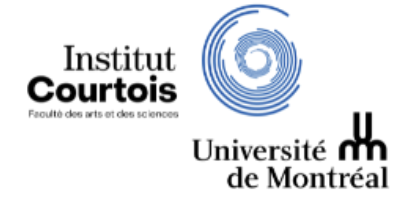Accelerate Grant Program

Research grants help drive our approach to advancing materials discovery. These grants not only allow the AC to enhance the scope and depth of our research endeavours but also facilitate the translation of groundbreaking discoveries into real-world applications.
2025 Research Funding Opportunities
The Acceleration Consortium (AC) is pleased to announce the 2025 Accelerate research grants. This program helps to drive the AC’s approach to accelerating scientific discovery, not only by expanding the scope and depth of research but also through the translation of groundbreaking discoveries into real-world applications. These grants provide funding for research across physical, life, computational, and social science domains relevant to, but not limited to the following:
- the development of self-driving labs (SDLs) or the development of the artificial intelligence (AI) and automation tools required to build SDLs,
- the use of SDLs for materials or molecule discovery,
- policy or other frameworks to support the responsible use and uptake of SDLs, or
- the implications (economic, social, etc.) of AI and automation for accelerated discovery and the community-based use of these technologies.
End-uses of the research should support advances in sustainability or human health. Applications from all disciplines are encouraged. Indigenous science and technology and community-engaged research are focus areas for the AC.
This year, the AC is collaborating with:
Centre for Research and Applications in Fluidic Technology (CRAFT),
IVADO, and
Value
Seed Funding
Accelerate Seed Funding: maximum $125,000 (1 year)
Joint CRAFT-AC Seed Funding: maximum $100,000 (1 year)
Grant applications submitted to the CRAFT-AC stream will also be considered for the AC seed grant stream competition.
- Joint IVADO-AC Seed Funding: maximum: $250,000 (2 years)
- Grant applications submitted to the IVADO-AC stream will also be considered for the AC seed grant stream competition. However, the AC seed grant stream will only fund year one of the application.
Moonshot Funding
- Accelerate Moonshot Funding: maximum $500,000 (2 years)
- Joint Institut Cortois-IVADO-AC Moonshot Funding: maximum $400,000 (2 years)
- Grant applications submitted to the Institut Cortois-IVADO-AC stream will also be considered for the AC moonshot grant stream competition.
Translation Funding
- Accelerate Translation Funding: up to $500,000 (2 years) with the possible addition of $300,000 for equipment.
Submission Deadlines
NOI Application Deadline: August 4th, 2025
Full Application Deadline: Nov 17th, 2025
How to apply
Submit 2-page notice of intent (NOI) that will be assessed for project eligibility and quality, and to identify grant applications that can be merged.
Eligibility
AC Seed, Moonshot, and Translation Grants
- Lead principal investigators (PIs) must meet the University of Toronto’s eligibility guidelines and be eligible to hold tri-agency funding.
- AC Staff Scientists are eligible co-applicants.
CRAFT-AC Seed grants
- The project must align with the CRAFT mission to develop novel microfluidics-based technologies including diagnostics, organ-on-a-chip and biofabrication technologies.
- Proposed projects are required to utilize NRC in-kind resources, including Research Officers and/or Technical Officer.
IVADO-AC Seed Funding
- Projects must be led by at least two co-investigators, including a professor from the University of Toronto and one professor from IVADO’s five partner universities (UdeM, Polytechnique, HEC, ULaval and McGill).
Institut Courtois-IVADO-AC Moonshot Funding
- Projects must be led by at least three co-investigators, including a regular member of Institut Courtois, and a professor from the University of Toronto, and one professor from IVADO’s five partner universities (UdeM, Polytechnique, HEC, ULaval and McGill).
Please review the full grant guidelines for additional eligibility requirements.
Info session
A hybrid information and networking event will be held:
Date: Friday July 4th, 2025
Time: 9:30AM
Location: 700 University Ave. Seminar Room 10031
This is an opportunity to learn about the funding competition and find collaborators.
RSVP now. Full details on eligibility, evaluation criteria, funding rules, CFREF guidelines, ethical discovery principles and intellectual property can be found on the AC’s website.
Please contact acceleration@utoronto.ca if you have any questions.




